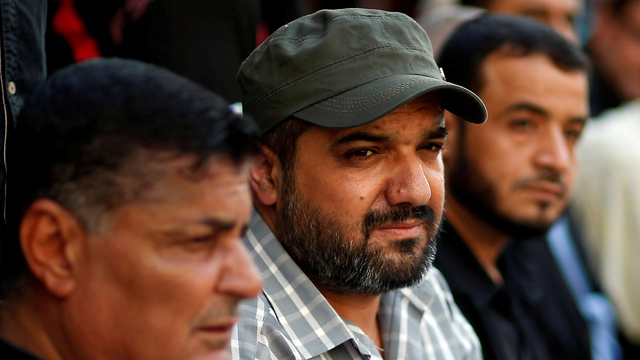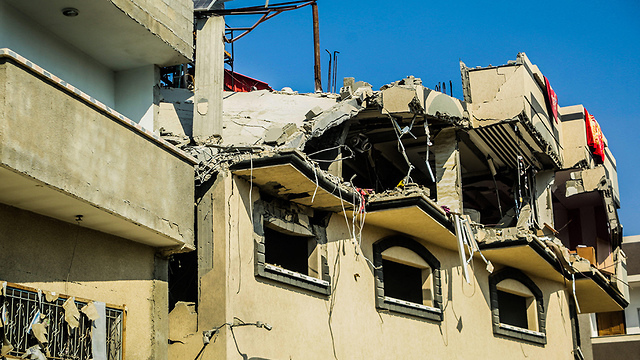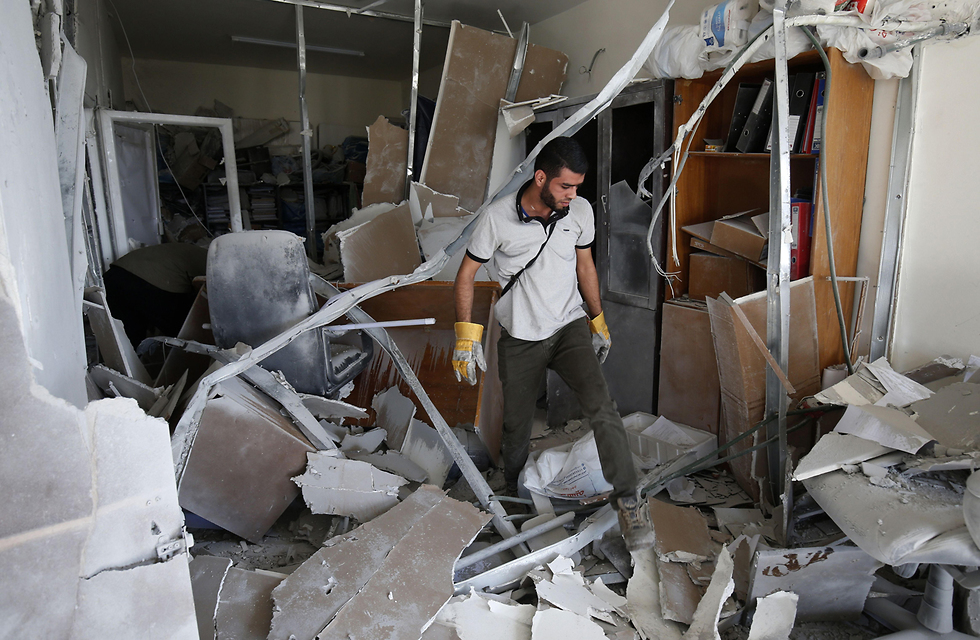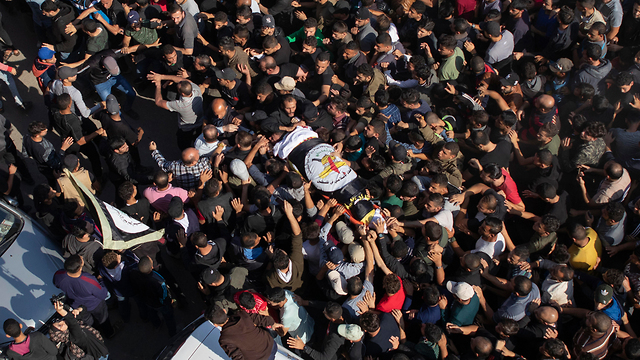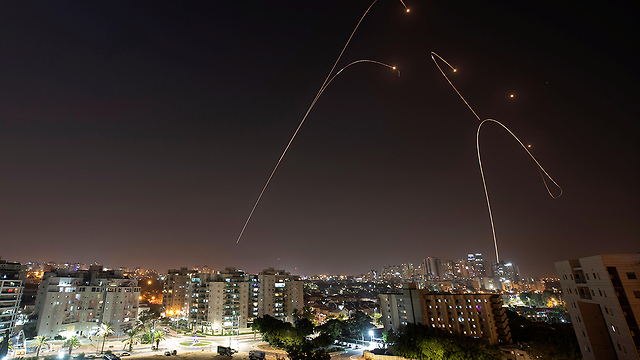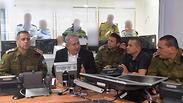
Killing Islamic Jihad commander was a calculated risk
Analysis: Unrestrained rogue element Baha Abu al-Ata was a guiding hand in previous - and future - attacks on Israel, and although it seemed necessary to cut off that particular head of the snake, the long-term ramifications could be dire
"All the stars were aligned," was the way Argaman described the situation, the trap was just waiting to be sprung.
It was clear to Argaman, Prime Minister Benjamin Netanyahu, IDF CHief of Staff Aviv Kochavi, and other higher-ups in the Israeli security forces that the moment they gave the word to eliminate Baha Abu al-Ata, and the baton was passed to the Air Force, all of Israel, including the center, will would be dragged into a military conflict that could last up to a week - and even that timeframe was uncertain.
It all came down to the number of casulaties on each side, and the extent to which Hamas choses to get involved in the inevitable conflict.
Hamas had no reason to get into further conflict with Israel, because if it did, it risked losing Egypt's support and Qatar's financial aid.
But if the conflict between Israel and Islamic Jihad had continued to escalate and the public pressure from inside Gaza increased, the group may have felt had no choice but to join the fray.
What was placed on Netanyahu's desk before the strike that killed Abu al-Ata was intelligence pointing to an elaborate terrorist attack in the works, one that included targeted rocket fire on the whole of Israel within few days.
The IDF and Shin Bet suggested to Netanyahu that Israel take down the engine of destruction that was responsible for the upcoming attack, and dozens of previous attacks - Islamic Jihad commander Baha Abu al-Ata.
They also proposed that eliminating al-Ata could be a shock attack against Islamic Jihad, as it was obvious that any attempt on al-Ata's life, successful or otherwise, would result in a violent reaction by the extremist organization.
The moment that al-Ata was marked for elimination by Israel, preparations for the aftermath of the attack also had to be made without losing the element of surprise.
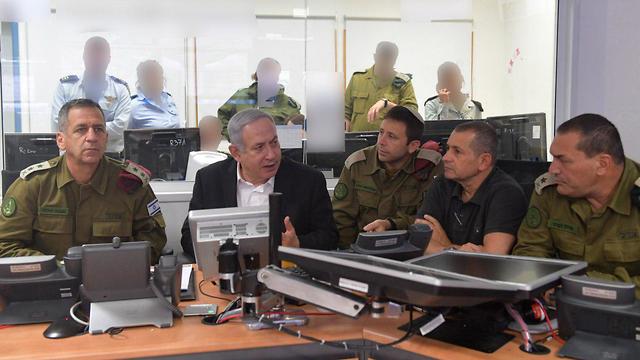
Al-Ata's routine was that of a fugitive, often changing apartments even before he was targeted for elimination. If Israel had shown even a hint of intent to attack in the Strip, al-Ata would have gone underground immediately, hiding under a hospital or kindergarten.
At 4am on Tuesday, the Air Force attacked a three-story building in Gaza, using information provided by the Shin Bet about al-Ata's apartment and its exact layout.
According to an official Syrian spokesperson, at 4:15am, Israel also attacked the house of one Akram Ajouri, near the Lebanese Embassy in Damascus.
Ajouri and al-Ata were acquaintances, linked both politically and operationally, and Ajouri wasn't just the conduit between Islamic Jihad to Iran, he was also the head of the organization's military division and the one responsible for its finances.
Iran sees Islamic Jihad as one of its proxies and helps the organization function from its Damascus headquarters.
Al-Ata was seen as the unofficial leader of the organization's military branch in Gaza, and although he acted mostly independently, the description Israel gave him of a "rogue element who does as he wishes" is not completely accurate.
If the Iranians had wanted and Islamic Jihad itself had insisted, al-Ata could have been restrained, but it seems Iran enjoyed his "rascally exploits," mostly because it seemed he was the only one able to punish Israel for interfering with its interests in Syria.
Islamic Jihad's anticipated response to al-Ata's elimination provided the perfect excuse for Israel to tear down the terrorist infrastructure he spent years building in the Gaza Strip.
And yet, the decision made by the heads of Israel's security forces to return to Gaza for a targeted killing did require some calculated risks.
The action taken by Israel was meant to shock Islamic Jihad, take out certain key players in the conflict and deal a blow to the organization whose main objective was to set the security agenda in the Strip and torpedo talks between Hamas and Israel.
The group's response after the elimination proved that the organization is indeed in disarray; and although its arsenal outstrips that of Hamas, the rockets that were fired on Israel were sporadic and scattered.
Although al-Ata's absence was felt during the group's response, Israel believes this only a temporary situation, and there will be larger, more accurate rocket fire with a longer range in the near future.
The real question remains whether the risk Israel took was justified and where this will lead.
In the meantime, Islamic Jihad can indeed claim one success - it brought the normal routine of the citizens of Israel to a temporary halt.
But it's doubtful this will satisfy the organization or its patrons in Damascus and Teheran.










